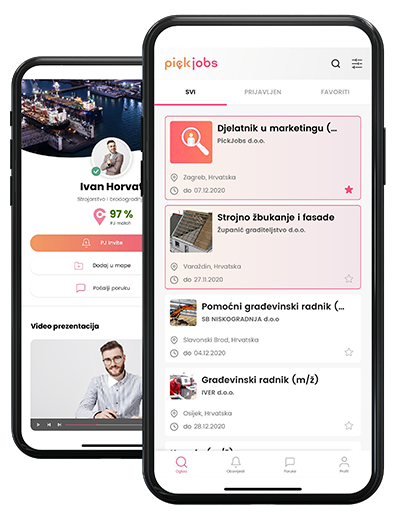Are you invited to a job interview? Congratulations! We bring you some tips for even better preparation. Regardless of whether you are conducting a job interview with an HR specialist, a manager or an employer, you can certainly expect some of these questions.
At a job interview, most people want to do their best to make a good impression, and preparing for the interview also means thinking about the questions the employer might ask you.
Tell me something about yourself.
Provide all key information related to your relevant work experience and education. Do not disclose personal information or keep it to a minimum. This is an opportunity to say something about your education, (work) experience and things you like to do, which are in some way related to this job, which you want to get.
Why should we hire you?
Highlight all your talents and how much the company could profit from them. Support this with examples of concrete achievements that you have achieved in your previous jobs. The key to answering this question is finding a balance in how this employment will benefit you and how your potential employer will benefit. Show in detail why all of you are the ideal candidate who will rescue the company from its problems and help it stand out in its business - precisely because of your qualities and knowledge.
What do you like most about your job?
Use the opportunity to show through your answer that you see the bigger picture. State that teamwork, quality relationship with colleagues, gaining concrete work experience are important to you...
What is more important to you: work or money?
You can answer that quality work is very important to you in order to acquire additional skills and knowledge, but that money is equally important for a stable life and that you appreciate when your employer recognizes and rewards your effort and contribution. See what employees want more than a raise?
Why did you leave your previous job?
You can say that you are ready to gain new experiences, greater opportunities for professional development and/or opportunities for additional advancement. How do you explain to a potential employer that you were fired from your previous job? Read these tips.
Why do you want to work for us?
Research the company before the job interview so you can more easily explain why you want to continue developing your professional skills with them. Explain to them how specifically these skills can contribute to the development of their business.
Why did you change jobs so often?
Try to briefly explain the nature of each job and what your professional goal was when you did that job. Explain how you built on your previous experience with each new job, and by no means blame your former employers for terminating your employment!
How much salary do you expect?
In accordance with the salaries in that specific branch, offer a salary range that you are ready to agree to. In order for your offer to best match the employer's interests, use the information you can find on the Internet. Can I ask you about your previous salary at a job interview?
May I contact your former employer for a referral?
The examiner wants to see your reaction. Stay calm and positive. You will answer, of course, with 'yes'. If this is the case, you can mention that your former/current employer is not aware of the fact that you are looking for a new job. It would be a good idea to contact the employer to let him know that he can expect a call and politely ask him to meet you and say a few nice words about your work.
Do you also apply to other job advertisements?
Mention only a few companies that invited you for a job interview, if that was the case. The interviewer wants to know if you are a serious job seeker and if you are keeping any options open. If you would really prefer to work for this company, say so. An employer likes to hear that he is your first choice. Answer honestly. Do not discuss this topic too much and rather remind the employer of the professional qualities you have and from which his company could benefit if they hire you.
Employers ask tough questions because they want to know more about you and how you handle pressure and stressful situations. They are interested in how you follow your thought process and what your critical thinking skills are like. When they ask a question you didn't expect or something that's generally difficult to answer, the employer can see how you manage to work on something you're uncomfortable with or don't know. Sometimes they do this to assess your honest answers rather than the sample answers you prepared before the interview. Topics may include time management, conflict management, leadership, customer service, communication skills and traits.

 Croatia
Croatia Bosnia and Herzegovina
Bosnia and Herzegovina Serbia
Serbia Crna Gora
Crna Gora North Macedonia
North Macedonia Ukraine
Ukraine Albania
Albania Kosovo
Kosovo Austria
Austria Deutschland
Deutschland Switzerland
Switzerland









